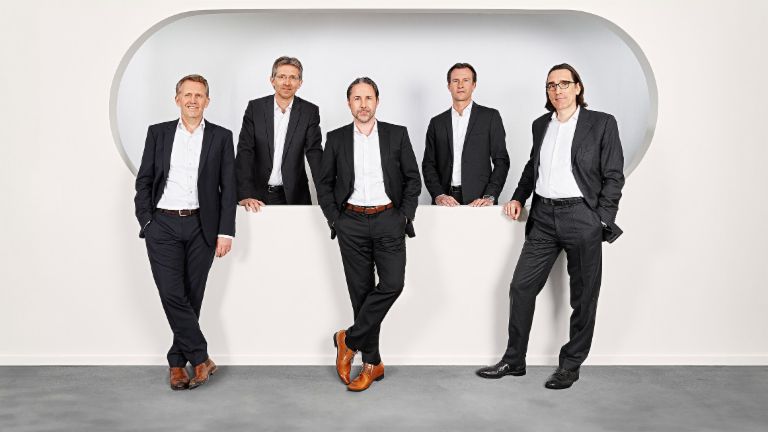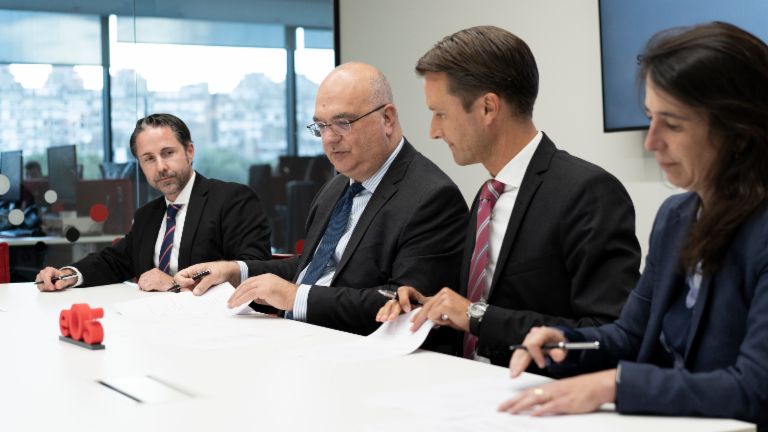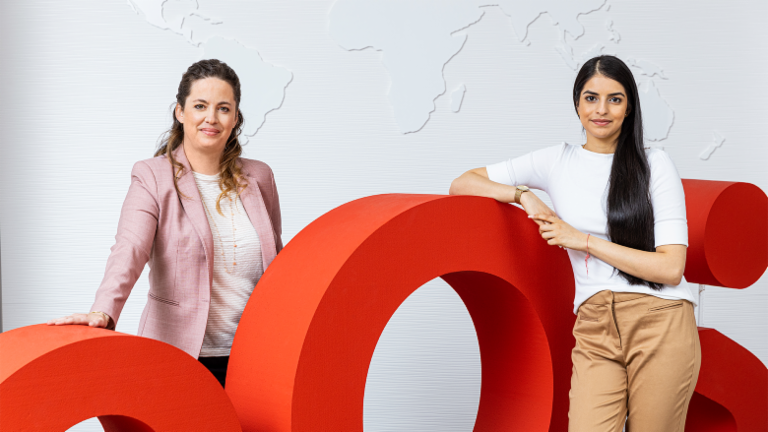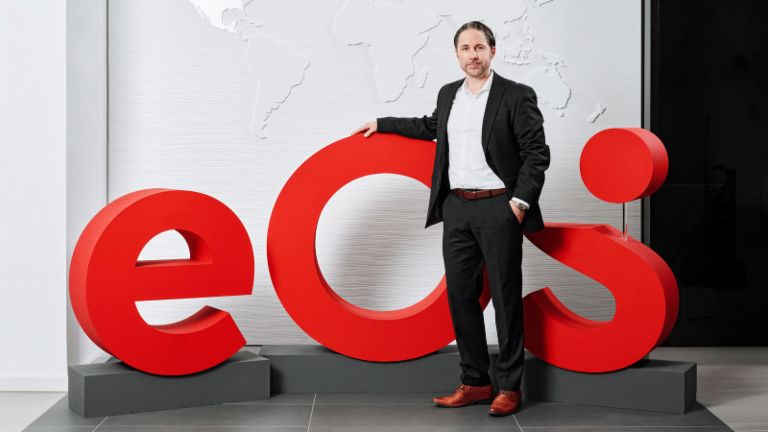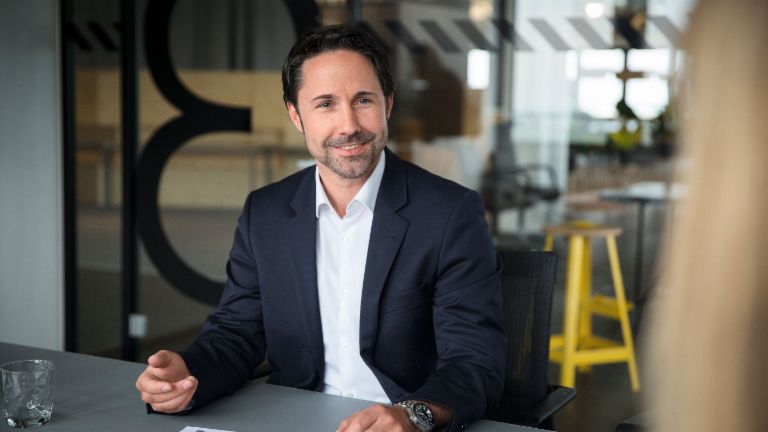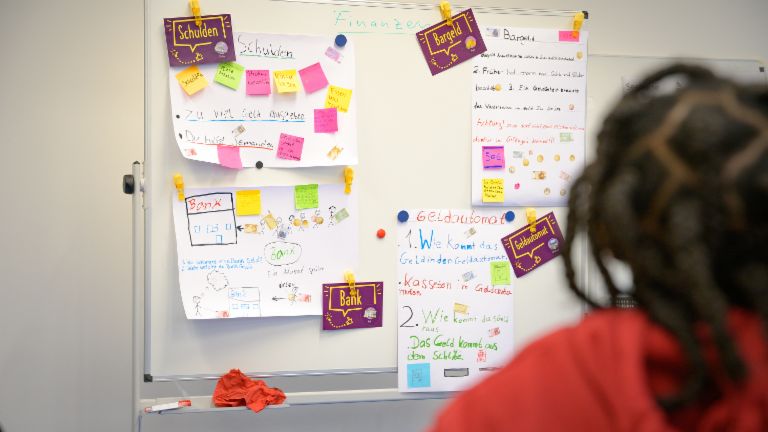
Press releases
The debtors are less likely to promise payments.
- The Czechs are still the least delinquent debtors in Europe
- Debt collection agencies expect a substantial decline in morality this year
- Agreements with debtors are becoming harder to reach
This year will bring a deterioration in payment morality
According to EOS statistics, the impacts of a challenging economic situation are now apparent among debtors. As of the data for 2022, neither the pandemic nor the energy crisis had left a mark on debtors' delinquency, and the payment morality of Czech debtors in 2022 continued a long-term positive trend. However, predictions indicate that statistics for 2023 might not be as optimistic.
Agreeing on repayment with debtors is becoming more difficult
The Association of Debt Collection Agencies reports that the average amount of debt under the management of collection agencies has increased by 2,079 CZK. On average, Czech debtors repay 20,177 CZK to collection agencies. Additionally, EOS KSI has observed a year-on-year decline in debtors' willingness to negotiate agreements for paying off overdue amounts. "In our communications with customers, we have been monitoring the trend in the commitment rate for payment, that is, the willingness of debtors to enter into an agreement to settle their debt. And this value has declined over the past year. Our data clearly show that Czechs perceive their financial situation worse than a year ago and are reluctant to promise collection agencies something they cannot fulfill," explains Vladimír Vachel, the managing director of EOS KSI.
The willingness to promise repayment of debts has dropped significantly year-on-year in the South Bohemian Region, by almost ten percentage points. There has been a slight improvement in reaching agreements on debt repayment in only two regions - Prague and the Ústí nad Labem Region. However, the improvement is minimal, reaching only approximately one percentage point.
Debtors won't have the means to repay
The explanation for the reluctance to negotiate debt repayment could be the worsened standard of living for citizens across the country. Regardless of which region debtors live in, everyone faces higher energy prices and high inflation, which increases the price of items in the shopping basket. As shown by another EOS survey earlier this year, although Czechs save the most in Europe and only every seventh person has taken on new debt (in Europe, it was every fifth person), only every fourth person deems their savings sufficient. And it will get worse. "We don't rule out a sharp increase in debts and a sharp decline in monitored values throughout this year. Debtors simply won't have anything to take, it will be even more difficult to reach agreements with them, and their fulfillment by debtors will likely worsen. The economic results of the Czech Republic and the entire EU are not favorable, prices are not dropping, and the savings of ordinary citizens are dwindling," concludes Vladimír Vachel.
EOS KSI Czech Republic, s.r.o.
The EOS Group is a leading technology-based investor in debt portfolios and an expert in processing open debts. With over 45 years of experience and operations in 24 countries, EOS offers intelligent services to approximately 20,000 customers worldwide, primarily from banks, real estate, telecommunications, energy companies, and the e-commerce sector. EOS employs over 6,000 workers and is part of the Otto Group.
"I'm paying. Cash. So far," reports the Czech
“Platím. Hotově. Zatím mám,” hlásí Čech
- The financial reserves of a quarter of Czechs are considered sufficient.
- Cash is once again popular compared to pandemic expectations. It gives people a sense of security and control in tough times.
- Czechs are more confident in making financial decisions than the Swiss or the French.
More than half of young Czechs pay in cash.
Over the past six months, every seventh Czech has taken on debt. Food was the second most common item to borrow for, even though Czechs are champions in European discount shopping. Six out of ten Czechs consider prices when making daily purchases, and an equal number prefer buying discounted goods. The rest of Europe accrues more debt. New debt emerged during the crisis for every fifth European, with Hungary and Romania seeing 30% of respondents taking on new debt. Typically, the new obligation didn't exceed 499 euros. Although respondents from Western and Eastern Europe borrowed for different items, across the continent, debt was commonly incurred to cover basic needs like energy, food, or healthcare.
"People across Europe have taken on new debt primarily for essential items like energy or food, which is concerning. However, the study overall indicates that the majority of those surveyed handle money responsibly. It's interesting to note that 42% of Europeans use cash more frequently than six months ago. In the Czech Republic, it's claimed by 53% of residents aged 18-34, which is contrary to what we saw during the pandemic. Although we've been using cashless payments above the European average for a long time, for many people, cash still represents security and control, which is important to them in today's world and contributes to their responsible behavior," explains Vladimír Vachel, managing director of EOS KSI s.r.o.
Czechs skip restaurant lunches and takeaway coffees.
Consumers across Europe have had to give up certain things during tough times. The biggest cuts in planned expenses were for travel, dining out, cultural and leisure activities, with a third of Europe abstaining from these. Czechs tightened their belts even more, reducing spending on these items by up to 45% and also showing an inclination to save on clothing and daily small pleasures. Among younger respondents (18-34 years old), the determination to save is stronger, especially when their financial reserves are smaller—every third person foregoes expenses like travel or small indulgences like takeaway coffee.
Who saves, reaps benefits.
But only in Germany. Hard times force people to dip into savings, but only if they have any. The greatest willingness to save is demonstrated across Europe by people over 51 years old. Twenty-three percent of them also consider their savings sufficient. The best situation is in Germany, where almost every third person is content with their financial reserves. Conversely, the southern part of Europe shows the worst results, with only 10% of Serbians and 17% of Croatians having sufficient financial reserves. A quarter of Czechs, however, are faring much better, deeming their savings sufficient. Satisfaction with financial reserves among Czechs increases with age. Only 21% of young Czechs consider their financial reserves sufficient, similar to Slovaks or Hungarians. On the contrary, Czech respondents over 51 years old are almost as content as their Western neighbors (30%).
Young Czechs are more confident than the Swiss but desire education.
Forty-seven percent of all respondents fear their future financial situation. The whole of Europe is apprehensive about inflation and rising prices. Concerns about the future, particularly in the Czech Republic, keep more than three-quarters of respondents worried about rising prices. Young Czechs, like their European counterparts, also worry about job loss (27%), although the situation in the Czech labor market is good, with unemployment rates dropping to 3.6% in April.
Young people confront their fears with a quest for education. Over half of those surveyed aim to enhance their financial literacy, significantly surpassing the numbers for the entire Europe (43%). In the Czech Republic, interest in financial education among young people is three percentage points higher. Czechs also exhibit greater confidence in making financial decisions—46% of young Czechs don't hesitate in financial decisions. Groups of respondents over 51 years old fare even better, with 67% feeling firm in their decisions. Overall, Czechs outdo Germans and Swiss in financial decision-making confidence.
The willingness to further financially educate declines with age, with only 34% of respondents over 51 open to financial education. "The decline in interest in improving financial literacy among older people is understandable, whereas the desire among the young is warranted. The younger generation understands that relying solely on pensions and savings won't be sufficient for a secure retirement, and the importance of investment literacy is significantly growing," specifies Libor Ťupa, financial director of EOS.
About the EOS Survey "Europeans in Financial Difficulty? EOS Consumer Study"
In collaboration with Dynata, a specialist in online surveys, EOS conducted an online survey between February 3 and 9, 2023, among 7,700 consumers in 13 European countries. The survey focused on how the past six months influenced participants' consumption habits and financial situations.
EOS KSI Czech Republic, s.r.o.
The EOS Group is a leading technology-based investor in debt portfolios and an expert in open debt processing. With over 45 years of experience and operations in 24 countries, EOS offers intelligent services to approximately 20,000 customers worldwide, primarily from banks, real estate, telecommunications, energy companies, and the e-commerce sector. EOS employs over 6,000 workers and is part of the Otto Group.
- Every seventh Czech got into debt during the crisis.
- Food was the second item for which they borrowed, after energy. Czechs lead in European shopping during sales.
- Payment for utilities like energy, water, and rent is a priority for Czech respondents.
In the last six months, one in five Europeans got into debt. Although inflation in the Czech Republic is among the highest, Czechs borrow significantly less often (14%) than the Eastern European average (23%). The primary reasons for borrowing were heating and electricity costs. This was found out by a February study conducted by EOS among 7,700 consumers in 13 European countries. Among other things, it emerged that Czechs prioritize payments for energy, water, and rent the most.
Expenses for heating and energy were the primary reasons for a quarter of Europe's new debts in the last six months. Due to these costs, 24% of Germans, the highest among Western European countries, incurred debt. Every third Czech also mentioned energy as the main reason for their debt, aligning with a mild Eastern European average. Surprisingly, 26% of Czech respondents also used loans to finance food expenses. Unlike other countries, food constituted the second most frequent reason for new debts among Czechs. Only Germans (27%) in Western Europe showed a similar inclination, significantly exceeding both Eastern (20%) and Western (16%) Europe's average debt due to food.
Czechs tighten their belts – they won't buy what they don't need.
"Czechs are very price-oriented, with 63% of us considering prices even in everyday purchases, putting us high above the average along with Hungarians and Romanians. But where we absolutely excel is in sales. As the survey confirmed, almost six out of ten Czechs shop during sales, which is a European uniqueness. In the last six months, Czech consumers have also cut back the most—40% of respondents stated they're spending less," specified Vladimír Vachel, managing director of EOS KSI, s.r.o., behind the study.
However, Europe, as per the survey results, is saving, and consumers across all countries had to give up something. From the list of planned expenses, the most commonly cut were travel, dining out, cultural and leisure activities (33%). Czechs tightened even more, reducing expenses for these unnecessary items by up to 45%. More than a third of Czechs also gave up buying clothes, and every fourth person doesn't indulge in small daily pleasures they could afford before.
First energy, then a roof over the head.
When it comes to regular payments, respondents in all countries considered payment for energy and water the most crucial and would pay for them as the first expense. The second most crucial payment for Europe is rent, averaging at 61% of respondents. Having a roof over their heads is even more urgent for Czechs—82% of respondents marked it as a priority expense. For example, in Hungary, the ratio is nearly half lower, and rent payment is less prioritized compared to, say, paying bills for phone and internet.
Inflation scares three-quarters of the Old Continent.
Inflation was the main reason for saving and newly incurred debts for every second European. Czechs also perceive inflation and its associated higher prices as the main driver of debt but in a lower volume (43%). Slovakia is similar, with 4 out of 10 respondents in debt due to inflation. "Although Czech consumers don't cite inflation and its associated price rise as frequently as the rest of Europe, they're equally fearful. Inflation is a future bogeyman. Its height affects the financial stability and living standards of Europeans, hence three-quarters of all respondents mention it as a source of fear. The most concerned are in Hungary (84%) and Serbia (82%). Expensive energy and high bills also cause concerns about financial future for every second European," adds Libor Ťupa, financial director of EOS KSI s.r.o.
About the EOS Survey "Europeans in Financial Difficulty? EOS Consumer Study"
In collaboration with Dynata, a specialist in online surveys, EOS conducted an online survey between February 3 and 9, 2023, among 7,700 consumers in 13 European countries. The survey focused on how the past six months influenced participants' consumption habits and financial situations.
EOS KSI Czech Republic, s.r.o.,
The EOS Group is a leading technology-based investor in debt portfolios and an expert in open debt processing. With over 45 years of experience and operations in 24 countries, EOS offers intelligent services to approximately 20,000 customers worldwide, primarily from banks, real estate, telecommunications, energy companies, and the e-commerce sector. EOS employs over 6,000 persons and is part of the Otto Group.
Contacts
AMI Communications, spol. s r.o.: Týn 641/4, Prague 1, Růžena Černíková, email: ruzena.cernikova@amic.cz, tel.: 777 185 199, www.amic.cz
EOS KSI Czech Republic, s.r.o., Managing Director Vladimír Vachel, email: vladimir.vachel@eos-ksi.cz, tel.: 241 081 123, www.eos-ksi.cz
How to handle money is taught mainly by parents, Czech children admit
The persistent phenomenon of insufficient financial literacy continues to affect many Czech households. As a result, people make erroneous decisions, such as excessive consumption, choosing unfavorable financial products, or obtaining ill-considered loans. The solution might lie in financial education starting at an early age. Sufficient financial literacy can protect individuals from imprudent behavior in adulthood. However, according to a survey by EOS KSI involving 632 children aged 12 to 16 from across the Czech Republic, children claim that they learn more about financial literacy at home than at school.The low level of financial literacy among Czechs is not a new revelation. Many households struggle with debt, often leading to endless enforcement proceedings. Therefore, discussions about financial education in schools, supplemented by diverse educational programs, are increasingly becoming part of professional and public discourse. The importance of financial education for children is also supported by the Czech Banking Association's survey results, which indicate that 54% of Czechs believe that children are not sufficiently educated about finances within their families. "Developing financial literacy at a young age is crucial. It's not uncommon that during school events, we realize that many children have no idea what money is, where it comes from, or how to use it correctly. This not only poses a risk of making wrong decisions but also exposes children's financial naivety to exploitation," says Mgr. Jakub Černý, director of Masaryk Elementary School in Debř, Mladá Boleslav. Reflecting on children's cognitive abilities based on their age, Mgr. Ladislava Malířová, director of Tetín Elementary School near Beroun, also adds, "Even in kindergarten, children play at shops – selling, buying, albeit based on their imagination. Yet, at this age, they gain their first experiences with financial literacy. From the first grade, as they become more adept with numerical values, they gradually understand the function of banknotes and coins."
With over half of Czech children, parents discuss money matters at home.
According to the EOS KSI survey, money is important for 85% of the respondents. "A positive finding is that over half (58%) admit that their parents discuss finances with them at home. Seven out of ten children (73%) receive pocket money from their parents, and 73% of them receive more than 200 CZK per month," comments Vladimír Vachel, managing director of EOS KSI. However, not so encouragingly, three-quarters (75%) of young respondents claim that no one teaches them how to handle money at school. Additionally, in the survey, children admit that they spend most on food, followed by clothing and cosmetics. If they suddenly received 100,000 CZK, only one out of a hundred would spend it all. Most often, they claim they would spend part and save part (46.5%) or save it all (42%).
Educational projects paving the way to a better future
Several educational projects in the Czech Republic aim to improve this unfavorable situation. One such project is ManoMoneta. "The project helps children aged 9 to 13 learn to manage money in a fun way and prepares them for the realities of adult life in the financial world. It also provides teachers with high-quality educational materials, enabling them to introduce financial issues to students in an engaging manner," explains Vladimír Vachel from EOS KSI. Schools consider similar programs crucial. "The activities that professionals bring to school are beneficial because children perceive them differently from teachers. Students discuss and ask a lot of questions during such lessons," shares Ladislava Malířová from Tetín Elementary School.
Teachers can download necessary educational materials for free from the ManoMoneta website and then engage students in a game using knowledge cards featuring terms such as budget, invoice, bank, debt, money, or savings account. "Our goal is for children to experience, through games and realistic life situations, what awaits them in adulthood," adds Vladimír Vachel, mentioning that teachers have the option to request a free consultation or a demonstration lesson through the project's website.
The survey involved 632 respondents aged between 12 and 16 and took place online in December 2022. Participation was limited to this age range.
Payment morale of companies declines after 8 years
Results of the international survey conducted by the EOS group among businesses:- Every fifth invoice in Western Europe and every fourth in Eastern Europe is paid late or not paid at all.
- The payment morale of companies had been improving over the past eight years, but this year it declined for the first time.
- Not only is the payment period extending, but also the proportion of delayed and uncollectible payments.
- Czech companies are not afraid of bankruptcy due to unpaid invoices.
- Nearly half of European companies utilize external debt collection services.
Payment delays beyond the due date are common in the business environment, but the situation had been progressively improving since 2015 in both Western and Eastern European countries, including the Czech Republic. During the last survey of Czech businesses in 2019, the average delay in invoice payments was 21 days. This year, companies admitted a delay of 23 days, marking a shift for the worse for the first time in eight years. "The higher inflation rates, expensive energy, and the war conflict in Ukraine are increasing uncertainties and concerns among entrepreneurs, which they often address by withholding payments from suppliers. I fear that this problem will grow and may lead to insolvency for some smaller companies. The subsequent chain reaction could further deteriorate our economy," predicted the future trends Vladimir Vachel, the managing director of the debt collection agency EOS KSI.
Rise in the share of unpaid and delayed payments
According to the EOS group's survey, the payment morale in the Czech Republic worsened by 3 percentage points over the last three years. While in 2019, the share of late paid and uncollectible invoices was 19%, this year companies admitted to 22% of such cases. "The positive aspect is that Czech companies and consumers still approach their obligations responsibly. In terms of the share of delayed payments, we are faring much worse than the Germans, who have a stable 14%, but still above the Eastern European average. The worst situation is described by companies in Slovakia, where the share of overdue payments reaches 28%," commented Vladimir Vachel.
Czech companies aren't afraid of bankruptcy due to unpaid invoices
The survey revealed that Czech companies fear bankruptcy due to unpaid invoices from customers the least in Europe. Only one in six companies in the Czech Republic (15%) confirmed concerns, while the European average is around 20%. In Western countries, the most concern is found among companies in the UK (27%) and France (26%), as well as neighboring Germany (21%). Eastward from our borders, companies in Croatia (29%) and Greece (24%) express the most existential concerns. Slovak companies are similar to Czech ones, with 17% admitting fear of bankruptcy due to delayed payments.
When it comes to reasons for not paying invoices on time, Czech entrepreneurs most commonly cite secondary insolvency and full utilization of supplier credits. Invoices remain unpaid mainly because their customers owe them. This problem is faced by 53% of Czech businesses. In third place is the current insolvency (37%), which this year surpassed reasons due to insufficient internal capacities (33%). Companies in Romania (53%), Hungary (51%), and France (50%) mentioned the insolvency of customers as a serious problem.
Future Outlook: Optimism Replaced by Skepticism
When asked about their expectations for the payment morale's future development in 2019, companies across Europe expressed optimism. This year, the outlook for the future has literally turned upside down, both for Eastern European firms and from the perspective of those in Western Europe. Czech companies expect the development of payment morale in the next two years to be significantly more negative than the average.
Almost half of European companies use external debt collection agencies
To allow companies to focus on their core activities, many outsource some of their operations to external providers, including debt collection services. Nearly half of the companies in Europe (46%) confirm this trend. In Eastern European countries, the number of such companies grew from 41% to as high as 50%, surpassing even Western Europe (42%). In the Czech Republic, 41% of companies utilize this service.
About the survey:
The EOS group conducted the payment morale survey in collaboration with Kantar TNS in the spring of 2022. They surveyed both B2B and B2C segments in 3,200 firms across 17 European countries (Germany, UK, France, Belgium, Switzerland, Poland, Spain, Denmark, Romania, Greece, Bulgaria, Croatia, Slovenia, Hungary, Czech Republic, and Slovakia). In each country, including the Czech Republic, 200 companies were questioned on various aspects related to payment transactions and general economic trends.
Public trust in secure handling of user data among companies from different industries varies significantly. While internet users in Europe mostly provide data to banks with a sense of security, they don't trust social media platforms much with their information. When it comes to handling user data, trust in banks among Europeans is at 54%, and in the Czech Republic, it's even higher at 66%. Banks are the only institutions with over half of respondents showing trust. Social media platforms, on the other hand, have only 14% of Europeans and 16% of Czechs trusting them, ranking at the bottom of the trust ladder.
Even though trust is an issue, sharing data is seen as a necessity. At least that's the belief of three-fifths of Czechs, who feel that without sharing their data, they wouldn't be able to fully utilize the services provided by various companies. This was highlighted in an international survey conducted by the EOS group, which focused on the value of data from the perspective of internet users.
Europe trusts banks and online payment providers
Trust in customer data processing is fundamentally influenced by the type of institution handling the data. In Europe, banks retain the greatest trust among customers, with more than half (54%) placing their trust in banks. Conversely, customers have the least trust in social media and communication services, with only 14% of Europeans believing in them. The trust of Czechs in banking institutions is unusually high among Europeans. Banks enjoy higher trust only in North Macedonia (67%), with even Switzerland, renowned for its banking, ranking third (61%). Customers in Spain and France have the least trust in banks. "The high trust in banks in the Czech Republic likely stems from the perception of high regulation in the banking market, which has not been affected by any significant data breaches or proven misuse so far," explains Vladimír Vachel from the EOS KSI debt collection agency.
So, what motivates data sharing when trust in some institutions is not particularly high? The EOS survey showed that most people feel as though they have no choice and that data sharing is almost coerced. If they didn't share data, they wouldn't be able to fully utilize the services companies provide, as stated by two-thirds (66%) of Europeans. Among the staunchest proponents of this view are Macedonians (77%), while Czechs (61%) along with the French (58%) and Spaniards (61%) support it the least. Additionally, half of Czechs mentioned not being entirely aware of how to prevent data sharing or change settings to avoid it. This result places Czechs among the more uninformed in Europe, with other nations displaying much greater ignorance in this regard.
About the Survey: What value do data hold?
The extensive international study, "What value do data hold?" by EOS, was conducted in collaboration with Kantar in the first half of 2020 on a representative sample of individuals aged 18 and above in seventeen examined countries. A sample of 1,000 respondents each was evaluated from Belgium, Bulgaria, the Czech Republic, France, Croatia, Germany, Poland, Romania, Russia, Slovakia, Slovenia, Serbia, Spain, Switzerland, the United States, and the United Kingdom, and a sample of 300 respondents from North Macedonia. Participants answered questions about how they handle their data, how they provide it to others, their trust in companies, and their willingness to sell data for rewards.
EOS KSI Czech Republic, s.r.o., is part of a multinational network of 50 companies operating in over 25 countries, specializing in financial services and all aspects of debt collection. The EOS Group was established in 1974. EOS is a reliable partner known for the highest level of services. Prominent banks, insurance companies, leasing companies, consumer credit providers, as well as companies in telecommunications, wholesale, and retail, entrust their finances to EOS. The group's headquarters are in Hamburg, Germany. Besides Germany, the EOS group is directly represented in Belgium, Bosnia and Herzegovina, Bulgaria, Montenegro, the Czech Republic, Denmark, France, Croatia, Ireland, Canada, Hungary, Macedonia, the Netherlands, Poland, Austria, Romania, Russia, Greece, Slovakia, Slovenia, the United States, Serbia, Spain, Switzerland, and the United Kingdom, and indirectly in another 150 countries worldwide.
Even though trust is an issue, sharing data is seen as a necessity. At least that's the belief of three-fifths of Czechs, who feel that without sharing their data, they wouldn't be able to fully utilize the services provided by various companies. This was highlighted in an international survey conducted by the EOS group, which focused on the value of data from the perspective of internet users.
Europe trusts banks and online payment providers
Trust in customer data processing is fundamentally influenced by the type of institution handling the data. In Europe, banks retain the greatest trust among customers, with more than half (54%) placing their trust in banks. Conversely, customers have the least trust in social media and communication services, with only 14% of Europeans believing in them. The trust of Czechs in banking institutions is unusually high among Europeans. Banks enjoy higher trust only in North Macedonia (67%), with even Switzerland, renowned for its banking, ranking third (61%). Customers in Spain and France have the least trust in banks. "The high trust in banks in the Czech Republic likely stems from the perception of high regulation in the banking market, which has not been affected by any significant data breaches or proven misuse so far," explains Vladimír Vachel from the EOS KSI debt collection agency.
So, what motivates data sharing when trust in some institutions is not particularly high? The EOS survey showed that most people feel as though they have no choice and that data sharing is almost coerced. If they didn't share data, they wouldn't be able to fully utilize the services companies provide, as stated by two-thirds (66%) of Europeans. Among the staunchest proponents of this view are Macedonians (77%), while Czechs (61%) along with the French (58%) and Spaniards (61%) support it the least. Additionally, half of Czechs mentioned not being entirely aware of how to prevent data sharing or change settings to avoid it. This result places Czechs among the more uninformed in Europe, with other nations displaying much greater ignorance in this regard.
About the Survey: What value do data hold?
The extensive international study, "What value do data hold?" by EOS, was conducted in collaboration with Kantar in the first half of 2020 on a representative sample of individuals aged 18 and above in seventeen examined countries. A sample of 1,000 respondents each was evaluated from Belgium, Bulgaria, the Czech Republic, France, Croatia, Germany, Poland, Romania, Russia, Slovakia, Slovenia, Serbia, Spain, Switzerland, the United States, and the United Kingdom, and a sample of 300 respondents from North Macedonia. Participants answered questions about how they handle their data, how they provide it to others, their trust in companies, and their willingness to sell data for rewards.
EOS KSI Czech Republic, s.r.o., is part of a multinational network of 50 companies operating in over 25 countries, specializing in financial services and all aspects of debt collection. The EOS Group was established in 1974. EOS is a reliable partner known for the highest level of services. Prominent banks, insurance companies, leasing companies, consumer credit providers, as well as companies in telecommunications, wholesale, and retail, entrust their finances to EOS. The group's headquarters are in Hamburg, Germany. Besides Germany, the EOS group is directly represented in Belgium, Bosnia and Herzegovina, Bulgaria, Montenegro, the Czech Republic, Denmark, France, Croatia, Ireland, Canada, Hungary, Macedonia, the Netherlands, Poland, Austria, Romania, Russia, Greece, Slovakia, Slovenia, the United States, Serbia, Spain, Switzerland, and the United Kingdom, and indirectly in another 150 countries worldwide.
Even though the crisis related to the Covid-19 pandemic affected the income and financial situation of Czechs, the majority didn't fall into debt because of it. Debt due to the coronavirus crisis only affected a tenth of the economically active population in the Czech Republic. The most common reasons were everyday living expenses and consumption, with a quarter of cases involving health-related expenses. These health-related costs were also the most frequent expenditure for Czechs in general during the pandemic, with 40% of them spending on health. The second most common expense was consumer electronics, purchased by a third of Czechs despite the crisis. These findings come from a survey by the EOS Group, which examined the impact of the coronavirus crisis on the financial situation of residents in the Czech Republic and selected European countries.
The debt crisis in the Czech Republic is currently being postponed. Despite the pandemic, debts were avoided by four-fifths of Czechs. Only 13% of them incurred debt due to the crisis, mostly amounts ranging up to 26 (42%) or 65 thousand (28%) Czech crowns. "Although some Czechs got into debt during the crisis, in two-thirds of cases, it involved relatively low amounts. The coronavirus did not significantly impact the financial situation of most Czech households to the extent of necessitating a loan. Restrictions on certain expenditures and more cautious money management may have played a role. Nevertheless, the low debt levels resulting from the crisis are good news in terms of the financial responsibility of Czechs," evaluated the situation Vladimir Vachel, CEO of the EOS KSI debt collection agency. If Czechs were compelled to borrow due to the coronavirus crisis, it was most commonly to cover everyday expenses and consumption, reported by 60% of respondents. A third had to borrow money for rent or housing-related costs.
Some Czechs lacked finances for healthcare. Health expenses dominated during the coronavirus crisis, with two-fifths of Czechs spending the most on it, and it was the reason for debt for 25% of those who borrowed because of the crisis. The 50+ age group significantly spent more on healthcare, with every second person incurring these costs. People in partnerships and families with children also spent more on healthcare, with over two-fifths of them doing so during the pandemic. "Since the coronavirus situation particularly endangered people's health, increased spending in this segment makes sense. However, it's certainly a warning sign that a portion of the population got into debt because of it, despite the situation possibly being caused by income losses and subsequent difficulties in paying regular health-related expenses such as purchasing medications or rehabilitation," Vachel remarked.
Czechs spent on electronics even during the crisis. Health wasn't the only significant expense; nearly a quarter of Czechs bought new household appliances during the crisis. Families with children were the main buyers, with a third of them acquiring household appliances. However, Czechs purchased consumer electronics even more frequently during the crisis, with 33% obtaining such items during the pandemic. Men significantly spent more on consumer electronics, as reported by two-fifths of respondents, while only a quarter of women did. Those in partnerships and families with children also bought consumer electronics more frequently. Almost a quarter of Czechs had expenses related to purchasing furniture or other household equipment, with men and families with children making these purchases more frequently. Czech households improved not only in terms of equipment but also underwent smaller renovations. A quarter of economically active Czechs spent on renovations, with families with children being the most involved, while singles devoted the least time to such activities.
About the Survey: Covid-19 Financial Report
The survey was conducted in collaboration with the agency Dynata. In the Czech Republic, data collection took place among 1040 respondents in April 2021, in Germany and Croatia in January 2021, involving 2000 and 1000 respondents respectively. Participants answered questions about the pandemic's impact, focusing on the financial situation of Czechs and how it changed during the crisis. The survey explored how the crisis affected their behavior and consumption patterns, to what extent and for what reasons consumers incurred debt, and how they were able to repay debts.
EOS KSI Czech Republic, s.r.o., is part of a multinational network of 50 companies operating in more than 25 countries, specializing in financial services and all aspects of debt collection. The EOS Group was founded in 1974 and is known for its high-level services. Notable clients include banks, insurance companies, leasing companies, consumer credit providers, telecommunications companies, wholesalers, and retailers. The group's headquarters are in Hamburg, Germany. Besides Germany, the EOS Group has direct representation in Belgium, Bosnia and Herzegovina, Bulgaria, Montenegro, the Czech Republic, Denmark, France, Croatia, Ireland, Canada, Hungary, Macedonia, Poland, Austria, Romania, Russia, Greece, Slovakia, Slovenia, the United States, Serbia, Spain, Switzerland, and the United Kingdom. Indirectly, it is present in another 150 countries worldwide.
The debt crisis in the Czech Republic is currently being postponed. Despite the pandemic, debts were avoided by four-fifths of Czechs. Only 13% of them incurred debt due to the crisis, mostly amounts ranging up to 26 (42%) or 65 thousand (28%) Czech crowns. "Although some Czechs got into debt during the crisis, in two-thirds of cases, it involved relatively low amounts. The coronavirus did not significantly impact the financial situation of most Czech households to the extent of necessitating a loan. Restrictions on certain expenditures and more cautious money management may have played a role. Nevertheless, the low debt levels resulting from the crisis are good news in terms of the financial responsibility of Czechs," evaluated the situation Vladimir Vachel, CEO of the EOS KSI debt collection agency. If Czechs were compelled to borrow due to the coronavirus crisis, it was most commonly to cover everyday expenses and consumption, reported by 60% of respondents. A third had to borrow money for rent or housing-related costs.
Some Czechs lacked finances for healthcare. Health expenses dominated during the coronavirus crisis, with two-fifths of Czechs spending the most on it, and it was the reason for debt for 25% of those who borrowed because of the crisis. The 50+ age group significantly spent more on healthcare, with every second person incurring these costs. People in partnerships and families with children also spent more on healthcare, with over two-fifths of them doing so during the pandemic. "Since the coronavirus situation particularly endangered people's health, increased spending in this segment makes sense. However, it's certainly a warning sign that a portion of the population got into debt because of it, despite the situation possibly being caused by income losses and subsequent difficulties in paying regular health-related expenses such as purchasing medications or rehabilitation," Vachel remarked.
Czechs spent on electronics even during the crisis. Health wasn't the only significant expense; nearly a quarter of Czechs bought new household appliances during the crisis. Families with children were the main buyers, with a third of them acquiring household appliances. However, Czechs purchased consumer electronics even more frequently during the crisis, with 33% obtaining such items during the pandemic. Men significantly spent more on consumer electronics, as reported by two-fifths of respondents, while only a quarter of women did. Those in partnerships and families with children also bought consumer electronics more frequently. Almost a quarter of Czechs had expenses related to purchasing furniture or other household equipment, with men and families with children making these purchases more frequently. Czech households improved not only in terms of equipment but also underwent smaller renovations. A quarter of economically active Czechs spent on renovations, with families with children being the most involved, while singles devoted the least time to such activities.
About the Survey: Covid-19 Financial Report
The survey was conducted in collaboration with the agency Dynata. In the Czech Republic, data collection took place among 1040 respondents in April 2021, in Germany and Croatia in January 2021, involving 2000 and 1000 respondents respectively. Participants answered questions about the pandemic's impact, focusing on the financial situation of Czechs and how it changed during the crisis. The survey explored how the crisis affected their behavior and consumption patterns, to what extent and for what reasons consumers incurred debt, and how they were able to repay debts.
EOS KSI Czech Republic, s.r.o., is part of a multinational network of 50 companies operating in more than 25 countries, specializing in financial services and all aspects of debt collection. The EOS Group was founded in 1974 and is known for its high-level services. Notable clients include banks, insurance companies, leasing companies, consumer credit providers, telecommunications companies, wholesalers, and retailers. The group's headquarters are in Hamburg, Germany. Besides Germany, the EOS Group has direct representation in Belgium, Bosnia and Herzegovina, Bulgaria, Montenegro, the Czech Republic, Denmark, France, Croatia, Ireland, Canada, Hungary, Macedonia, Poland, Austria, Romania, Russia, Greece, Slovakia, Slovenia, the United States, Serbia, Spain, Switzerland, and the United Kingdom. Indirectly, it is present in another 150 countries worldwide.
Do you know the value of your data?
Acquiring and utilizing users' personal data is a hotly debated topic worldwide. Only a third of internet users across Europe, for instance, believe that companies will handle their data responsibly. Even Czechs are no exception – a quarter of them trust companies with their data. However, under certain circumstances, consumers don't have an issue providing data if appropriately rewarded. According to them, rewards, especially financial ones, should be offered, with 61% of Europeans expressing this preference. In the Czech Republic, while support for financial compensation is lower compared to the European average, it still reaches 50%, as revealed by an international survey conducted by the EOS group, focusing on the value of consumer data.Do we understand the value of our data? According to most Europeans, no.
According to three-quarters (68%) of Europeans, the majority of users are unaware of the financial value of their personal data. Czechs are not an exception, with 65% of them agreeing with this statement. "Data, especially personal data, are a valuable commodity. For instance, in the debt collection field, sharing data with people can save additional expenses. The more comprehensive data we have, the more individually we can address a debtor's specific situation and better assist them," commented Vladimír Vachel, a representative of EOS KSI company.
Although consumers are relatively uncertain about the financial value of their data, they desire financial compensation for its further usage. In Europe, 61% of respondents support companies offering financial compensation for data usage. The most significant support came from Croatians, while the French and Czechs were among the weakest in this aspect. Generally, consumers tend to be reluctant to consciously share their data for any form of compensation, be it a discount or premium services. In the Czech Republic, barely a quarter (24%) of respondents are inclined to do so, the lowest in Europe by a considerable margin.
Data, anonymity, and trust
Only a third of Europeans have trust in companies handling personal data responsibly. Czechs (25%) fall into this category and, once again, along with the French (18%), are among the least trusting nations. Conversely, the most trusting are the Macedonians (47%) and Slovaks (46%). "It's surprising that Slovaks are much more trusting of companies with their data compared to people here. It could stem from previous negative experiences with data handling, which might be worse in the Czech Republic," explained Vachel. Nearly a third (28%) of Czechs in the survey stated they tolerate the anonymous use of data by companies. "In practice, there's a distinction between managing personal data and outputs from anonymized data. The law doesn't limit the use of anonymized data; for instance, such data sources are used to create our annual statistics on Czechs' ability to meet their obligations," he added.
About the Survey: What value do data have?
The extensive international EOS study "What value do data have?" was conducted in collaboration with the Kantar agency in the first half of 2020 on a representative sample of individuals aged 18 and over in seventeen examined countries. A sample of 1,000 respondents from Belgium, Bulgaria, the Czech Republic, France, Croatia, Germany, Poland, Romania, Russia, Slovakia, Slovenia, Serbia, Spain, Switzerland, the United States, and the United Kingdom, and a sample of 300 respondents from North Macedonia, responded to questions about how they handle their data, provide it to other parties, trust in companies, and willingness to sell data for compensation.
EOS KSI Czech Republic, s.r.o., is part of a multinational network of 50 companies operating in over 25 countries, specializing in financial services and all aspects of debt collection. The EOS group was founded in 1974 and is a reliable partner known for the highest level of services. Significant banks, insurance companies, leasing companies, consumer credit providers, telecommunications, wholesale, and retail companies entrust their finances to the company. The group's headquarters are in Hamburg, Germany. Apart from Germany, the EOS group is directly represented in Belgium, Bosnia and Herzegovina, Bulgaria, Montenegro, the Czech Republic, Denmark, France, Croatia, Ireland, Canada, Hungary, North Macedonia, the Netherlands, Poland, Austria, Romania, Russia, Greece, Slovakia, Slovenia, the United States, Serbia, Spain, Switzerland, and the United Kingdom, and indirectly in another 150 countries worldwide.




